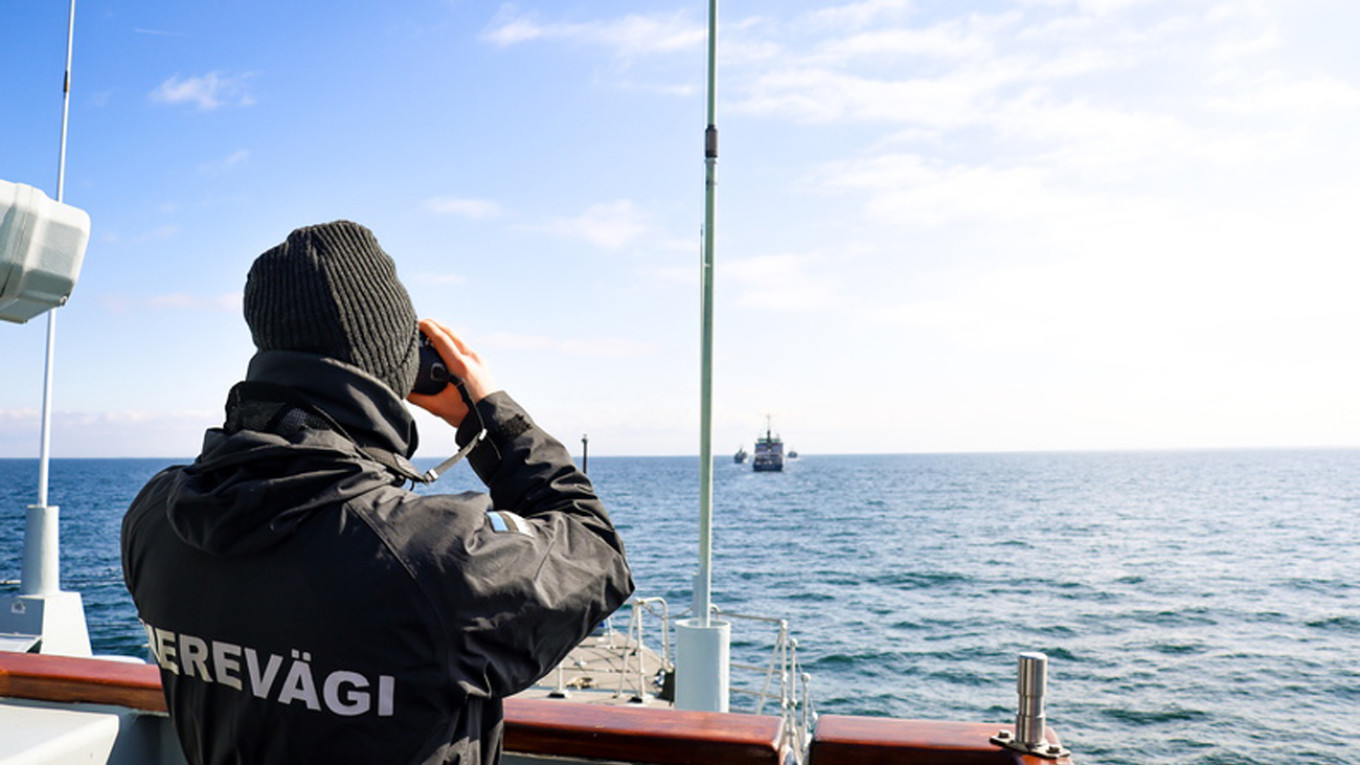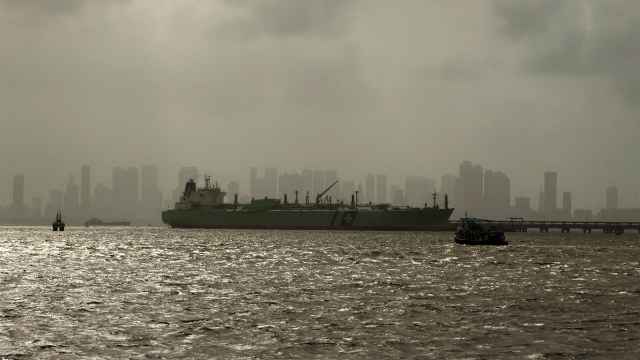Estonia has detained a Russia-linked tanker, marking the Baltic country’s first maritime operation targeting the so-called “shadow fleet” transporting Russian oil in violation of Western sanctions, the Postimees news outlet reported.
The vessel was intercepted in the early hours of Friday near Aegna Island in Muuga Bay as it sailed through Estonian territorial waters en route to the Russian port of Ust-Luga.
Authorities stopped the ship to verify its documentation and legal status, Estonian Navy Commander Ivo Värk told reporters at a press conference.
The tanker, identified as the Kiwala, was reportedly operating under the flag of Djibouti, according to vessel-tracking service MarineTraffic.
However, at the time of its detention, it was not flying a national flag — a violation of maritime law. The crew later produced a flag certificate, but a representative for Djibouti’s maritime authority denied that the ship was listed in its national registry.
Estonian transportation authorities are now inspecting the ship’s structure and reviewing its documentation to ensure it poses no threat to maritime safety, Postimees reported. The Kiwala is now under the guard of three Estonian naval vessels.
Veiko Kommusaar, deputy chief of Estonia’s Police and Border Guard Board, confirmed that the tanker is sanctioned by the EU.
It has also been sanctioned by the U.K., Canada, and Switzerland, according to the Ukrainian sanctions-monitoring portal War & Sanctions.
On board were 24 third-country individuals. The ship’s captain, a Chinese national, cooperated with Estonian authorities, Postimees reported. The rest of the people on board were preliminarily identified as citizens of Mauritania.
War & Sanctions noted that the Kiwala was previously commanded by a man named Sergei Kharchenko.
The vessel is owned by Tirad Shipping, a Mauritius-registered company whose fleet consists solely of the Kiwala. The tanker previously belonged to Turkish and Indian shipping firms.
The detention comes two days after the Estonian parliament passed legislation granting the country’s Defense Forces the authority to use force against vessels in the Baltic Sea if they are found to pose a threat to national security.
The law was passed in response to a rise in suspected sabotage incidents, including damage to undersea cables and critical infrastructure, which Estonian officials believe is orchestrated by Russian intelligence services.
A Message from The Moscow Times:
Dear readers,
We are facing unprecedented challenges. Russia's Prosecutor General's Office has designated The Moscow Times as an "undesirable" organization, criminalizing our work and putting our staff at risk of prosecution. This follows our earlier unjust labeling as a "foreign agent."
These actions are direct attempts to silence independent journalism in Russia. The authorities claim our work "discredits the decisions of the Russian leadership." We see things differently: we strive to provide accurate, unbiased reporting on Russia.
We, the journalists of The Moscow Times, refuse to be silenced. But to continue our work, we need your help.
Your support, no matter how small, makes a world of difference. If you can, please support us monthly starting from just $2. It's quick to set up, and every contribution makes a significant impact.
By supporting The Moscow Times, you're defending open, independent journalism in the face of repression. Thank you for standing with us.
Remind me later.






